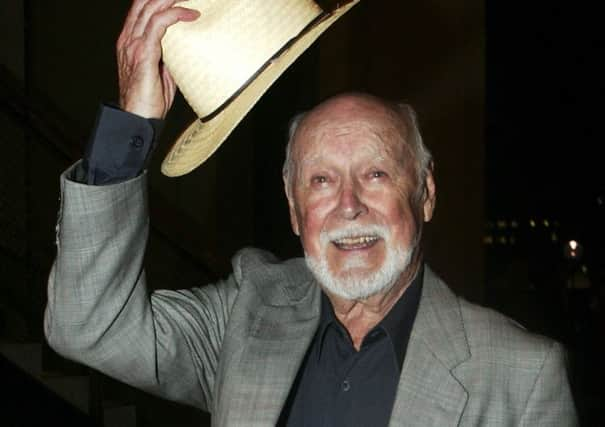Obituary: Bill Kerr, actor


The South African-born Australian actor and radio star Bill Kerr was principally known in this country as one of the stars of the iconic radio and television series Hancock’s Half Hour (HHH). He was one of Hancock’s hapless sidekicks in the show and was also seen in Dr Who, The Dam Busters and many shows in his native Australia.
Kerr is thought to be the last surviving male star of the Hancock series. He was a stalwart of the show for many years and was the butt of many Hancock pompous tirades. His character had a simple gravitas which made him an easy focus of fun.
Advertisement
Hide AdAdvertisement
Hide AdKerr had a close friendship with Eric Sykes with whom he co-wrote several scripts. In his autobiography Sykes wrote: “One of my happiest associations was with the Australian, and irrepressible, Bill Kerr.”
Bill Kerr was born in South Africa. He came from a theatrical family that moved to Wagga Wagga in Australia when he was a child. His mother encouraged his love of performing and by 1932 he was took on child roles on ABC television. During the war Kerr acted and often toured with the young Peter Finch.
He arrived in London soon after the war and gained a few spots at the legendary Windmill Theatre. Tony Hancock was the resident comedian and Kerr found they had a good rapport on stage.
In 1954 Ray Galton and Alan Simpson came up with the idea for HHH, which was centred around the indolent lifestyle of Anthony Aloysius St John Hancock, who lived in the dilapidated 23 Railway Cuttings in East Cheam. Kerr and Sid James were cast as his two muckers who had to cope with and control Hancock.
The show become hugely popular and became vital viewing when it transferred to television in 1961.
Kerr was, in fact, Hancock’s lodger, and the script was always careful to underline that the house had three bedrooms.
While James was your typical fast-talking Cockney, Kerr’s character changed over the years. He was often teased for coming from Wagga Wagga and was constantly belittled by Hancock.
Kerr’s character became more introverted, dim and was always unemployed. In fact, the situation created many comedy situations which Kerr had much fun exploiting.
Advertisement
Hide AdAdvertisement
Hide AdIn 1958, to entertain the athletes on their way home from the sixth British Empire & Commonwealth Games in Cardiff, the BBC staged a gala at London’s Coliseum theatre. The recording of it was recovered two years ago from the archives of the late Bob Monkhouse.
The audience roared with laughter as James tries to flog dodgy tickets for the Games to a cantankerous Hancock and a totally bemused Kerr. Their comic ability on stage was seldom heard to better effect.
Kerr was to prove a magnificent foil for Hancock over the years and Kerr reminisced in 2010 how much he admired Hancock. “Tony’s timing was superb. But I was so lucky to get on to his wonderful, wonderful, radio show. I couldn’t wait for a Sunday for the recording.”
Over the years Hancock believed he could make it on his own and distanced himself from the writers and his co-stars. Kerr was not often seen on the television programmes and his stabilising presence is apparent. Kerr was an integral part of the finely woven scripts that Galton and Simpson created.
In 1967 Kerr was seen in Dr Who, playing Giles Kent opposite Patrick Troughton’s doctor, and was a regular in the popular BBC soap Compact. Other television included Citizen James (with Sid James).
Kerr had made some distinguished stage appearances while in Britain and played the Devil, with an obvious glee, of Damn Yankees directed by Bob Fosse, and was also in the long run of The Bed-Sitting Room with Spike Milligan.
In 1972 Kerr scored a personal success when he co-starred with Anthony Newley in the long-running musical, The Good Old Bad Old Days.
His first film role was as Flight Lieutenant H B Martin (1955) – in handle bar moustache – in the classic The Dam Busters. Other major films included Peter Weir’s epic of the First World War, Gallipoli, and The Year of Living Dangerously, both with Mel Gibson.
Advertisement
Hide AdAdvertisement
Hide AdIn 1979 Kerr returned to Australia and settled in Perth. He was seen in many television dramas – notably Glenview High and Return to Eden. He also displayed his versatility by appearing as Alfred Doolittle in My Fair Lady.
Kerr gained fame at the beginning of his career when he opened a monologue with the phrase: “I’m only here for four minutes.” It became his catchphrase. One friend commented yesterday: “I’m very glad Bill was around for a lot more than four minutes.”
ALASDAIR STEVEN